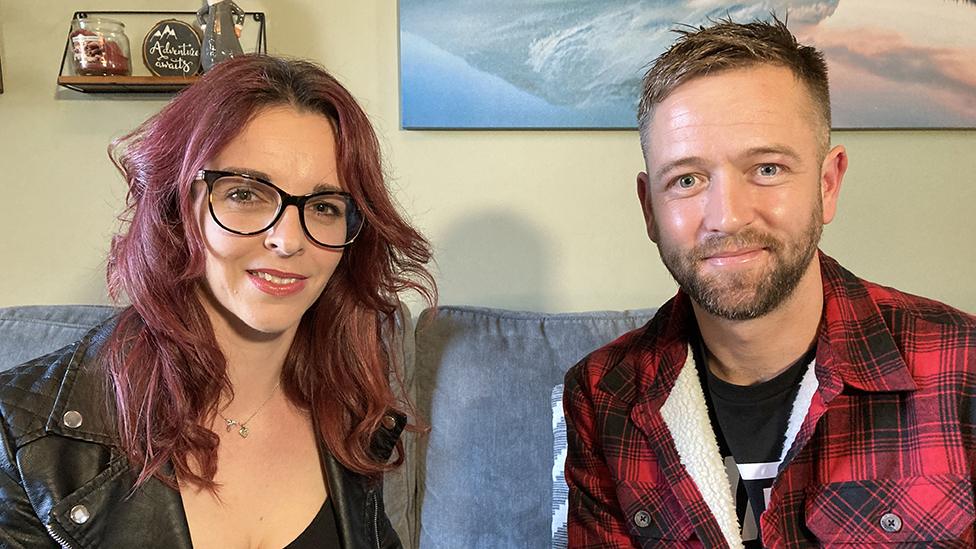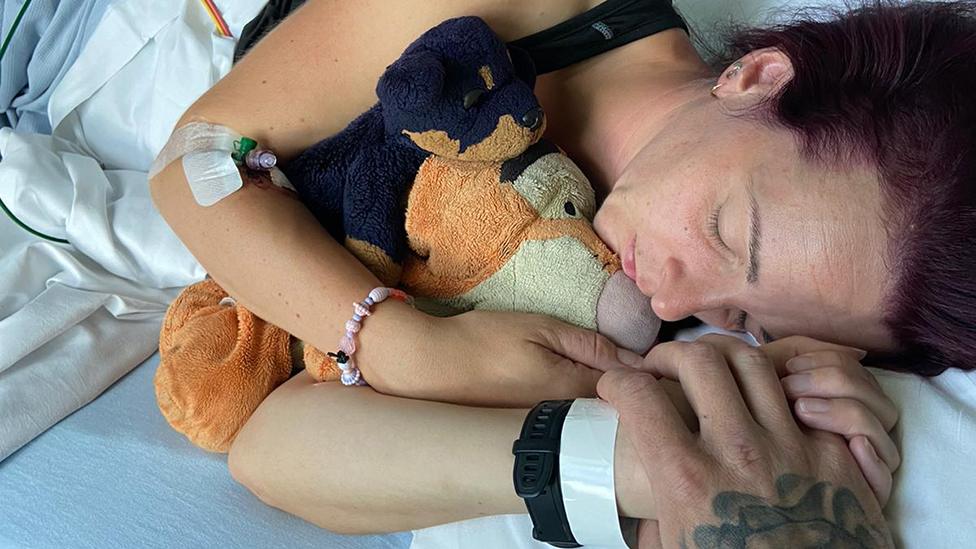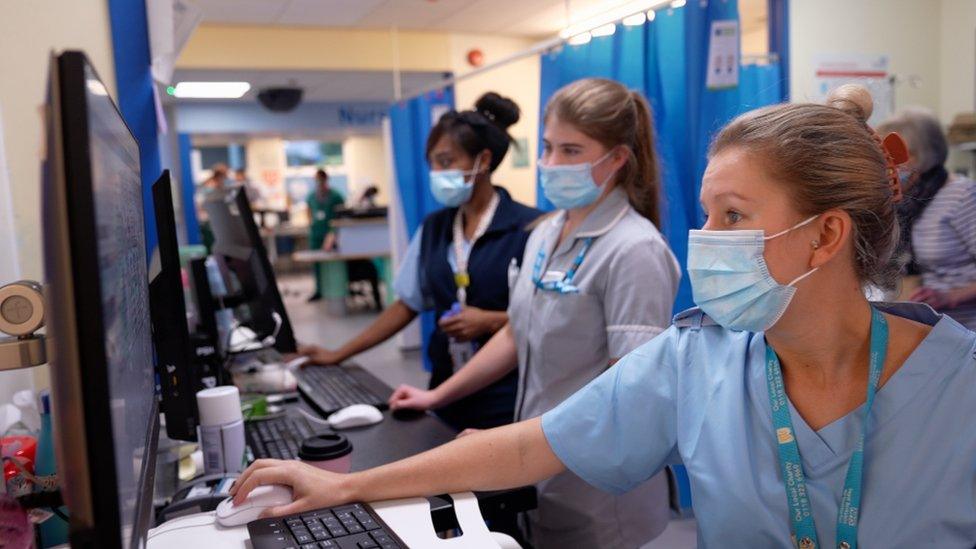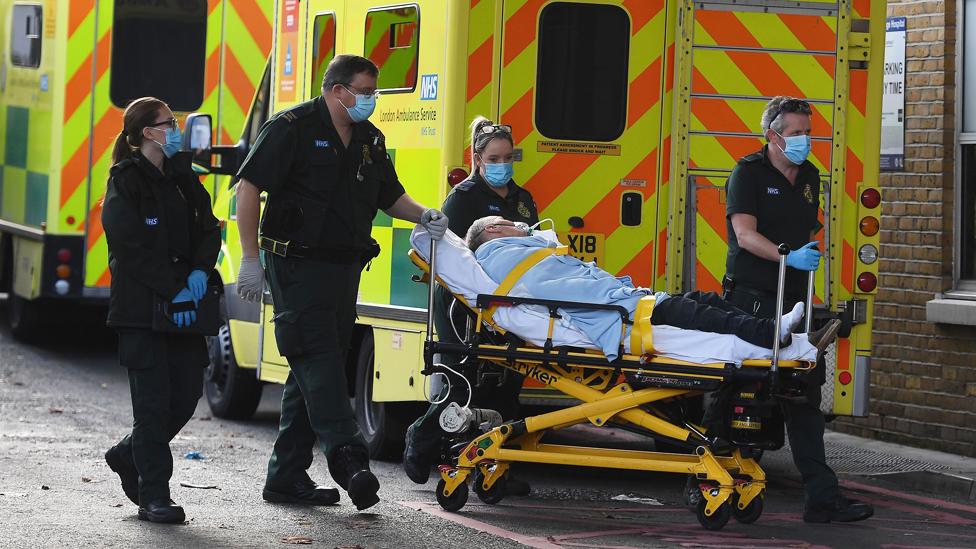Two-hour ambulance wait for Lincolnshire woman suffering stroke
- Published

Catherine Fahey's husband, Kyle, drove her to hospital after being told she face a two-hour wait for an ambulance
A Lincolnshire woman said she feared she would be left paralysed after being told she faced a two-hour wait for an ambulance after she suffered a stroke.
Catherine Fahey said her husband, Kyle, resorted to carrying her to their car and driving her to hospital.
She said she arrived just in time to be given "clot-busting medication".
East Midlands Ambulance Service (EMAS) said it was"deeply sorry" but was experiencing "immense, sustained pressure" on its service.
Now recovering at home near Lincoln, the 34-year-old said that she knew from television adverts that she needed treatment as soon as possible.
She said doctors told her if she had waited for the ambulance she might have missed the chance of taking the medicine, which has to be taken within four hours.
"If I'd have waited the chances of what my life would have been like after would have been completely different," she said.
"I probably wouldn't have been able to have the clot-busting medication and the potential of being paralysed on my left hand side."
The couple were celebrating their wedding anniversary in September when her husband spotted the signs of the stoke and called 999.
He was told to take her to Accident and Emergency where she was treated straight away.

Catherine Fahey was given clot-busting medicine in hospital
Mrs Fahey said she felt "very lucky" that she made it to hospital in time.
"The main thing is you have to act fast and two hours is just not OK, it wasn't acceptable," she said.
"I wouldn't be where I am now if we didn't drive or I couldn't get there."
Neil Scott from EMAS said it was investigating the incident.
"We are deeply sorry that we were unable to get to Ms Fahey sooner, as this is not the level of service we wish to provide, and we recognise the distress that this will have caused her and those trying to assist her at the time," he said.
"Unfortunately, we continue to experience immense, sustained pressure on our service and our staff are continuing to work hard to prioritise the sickest and most severely injured patients."

Follow BBC East Yorkshire and Lincolnshire on Facebook, external, Twitter, external, and Instagram, external. Send your story ideas to yorkslincs.news@bbc.co.uk, external
Related topics
- Published8 December 2022

- Published8 December 2022

- Published12 May 2022
